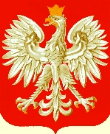DisclaimerWhen I began putting this website together, I quickly found out what was most challenging. It wasn’t learning how to read genealogical documents in foreign languages such as Ukrainian, Polish, Latin, Russian, German or Church Slavic. It wasn’t finding out how to obtain critical resources needed to research one’s family from across an ocean in a land once dominated for decades by a suspicious and unwelcome Soviet state bureaucracy. It wasn’t the hundreds of books and periodicals read on the region. No, it wasn’t any of these things. The most challenging aspect to the site was determining what terminology to use on the most basic subjects! Visit my quick reference page to the use of language throughout this website. Regardless of which rulers and which churches dominated the region of Galicia, the fact remains that it was home to a varied group of different nationalities, religions and languages. Since all of my own personal family research has brought me to study the Polish and Ukrainian aspects of Galicia, I will only focus on these two groups on this site. I am fully aware of the other groups who called the region home: the Jews, Gypsies, Germans, Armenians. Those of the Jewish, Protestant, and Orthodox faiths. Those who spoke Yiddish, German, Armenian and Roma. It is not a matter of choice that I give little information on these groups, rather it is simply a matter of space that I include very little on these subjects. I hope to one day include more information on these groups. For now, I will do what I can by providing links to websites which devote their time to the genealogy of these peoples. Now, dealing only with Polish and Ukrainian genealogy of Galicia does not make life any easier. However, instead of ‘towing the line’ of others who undoubtedly have an agenda to ‘win you over,’ I will tell you my side of Galician genealogy. My ancestors came from the parish of Bilyi Kamin (Білий Камінь) / Biały Kamień, located about 35 miles east of L'viv (Lwów). My ancestors spoke both Polish and Ukrainian equally fluently. Regardless of their own choice of church, either Roman Catholic or Greek Catholic, they attended both services for holy days, baptisms, marriages and funerals. They felt equally at home in both. My ancestors, both Roman Catholic and Greek Catholic, both Polish and Ukrainian, were equally poor as their neighbors. In Bilyi Kamin (Білий Камінь) / Biały Kamień, although there were two churches, one Roman Catholic and one Greek Catholic, you will find only ONE cemetery. As a distant relative of mine, Hanna Makarovska, a 7th cousin I found while visiting Bilyi Kamin (Білий Камінь) / Biały Kamień, once addressed me on this very subject: "They lived together, worked together, and are buried together." Regarding nationalism. I will not use my website to promote anti-Ukrainian or anti-Polish animosity. Of course, history was not kind to Ukrainians and Poles living in Galicia. Mistrust and bloodshed were far too often the result of politics, language and cultural barriers of outsiders, extreme poor economic conditions, religious zeal, xenophobia and general bigotry. I understand that during your own quest to learn more about your ancestral home of Galicia you will come into contact with these negative traits. I only ask you to do what I have done....read anything and everything you can on the subject.... but with an open mind. Never read only one point of view. Times are changing. (Remember, Poland was the first country to officially recognize Ukraine’s independence from the Soviet Union.) Of course, one should not ignore or forget the past....it is still too valuable to us (especially to us genealogists). But more importantly, however, one should look forward to the future with more eagerness, hope, and understanding. |
|
www.halgal.com
Questions and Comments to Matthew
Bielawa |

